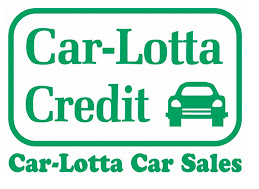Monday, August 24, 2020
How Well Do You Know The PA School Bus Stopping Law?
Motorists must stop at least 10 feet away from school buses that have their red lights flashing and stop arm extended.
Motorists must stop when they are behind a bus, meeting the bus or approaching an intersection where a bus is stopped.
Motorists following or traveling alongside a school bus must also stop until the red lights have stopped flashing, the stop arm is withdrawn, and all children have reached safety.
If physical barriers such as grassy medians, guide rails or concrete median barriers separate oncoming traffic from the bus, motorists in the opposing lanes may proceed without stopping.
Do not proceed until all the children have reached a place of safety.
Car-Lotta Reminds You That Schools Will Re-Open SOON.... Well, maybe!
Monday, August 17, 2020
What Do You Use To Was Your Automobile?
For many vehicle owners, washing a car by hand is a therapeutic act as beneficial for the person's state of mind as to the vehicle's appearance. Fequent washing is also the best way to maintain a new-car finish. As simple as washing your autoseems, there are some things to watch for so that you don't accidentally scratch or degrade the finish.
Here are some basic car-washing tips.
Don't... use household cleaning agents like hand soap, dishwashing detergent, or glass cleaner on the paint. These aren't formulated for use on a car's paint and may strip off the protective wax.
Do... use a dedicated car-wash product, which is milder and specifically designed for use on automotive paint. Apply the suds with a large, soft natural sponge or a lamb's-wool mitt.
Grease, rubber, and road-tar that is picked up from the road often accumulate around the wheel wells and along the lower edge of the body. These can be stubborn to remove and may require a stronger product, such as a bug-and-tar remover. Use a soft, nonabrasive cloth to remove these deposits, as they can quickly blacken your sponge.
Do... use a separate sponge to clean the wheels and tires, which may be coated with sand, brake dust, and other debris that could mar the car's finish. Mild soap and water may work here; if not, a dedicated wheel cleaner may be required. Be sure the cleaner is compatible with the type of finish (paint, clear-coat, chrome, etc.) used on the wheels. A strong formula intended for mag wheels, for instance, can damage the clear coat that's used on the wheels that come on today's cars. To be on the safe side, choose a cleaner that's labeled as safe for use on all wheels.
Car-Lotta wants you to keep your 4 wheel baby clean!!!
Monday, August 10, 2020
Who Is Driving Your Vehicle
Do You Ever Let Someone Drive Your Vehicle ?
If you own a vehicle, chances are you've let a friend or family member borrow it at least once.
There are plenty of reasons to hand over the keys. Maybe you needed a relative to pick up your kids from school or you're helping someone get to work after their car broke down.
Did you know that in the event of an accident...
it's your auto insurance policy that would have to pay?
The number one misconception about loaning out your vehicle is that if you let your neighbor borrow your car, an accident should go on their insurance because he or she was the one driving but in private passenger auto insurance, the coverage typically follows the vehicle, not the driver
.
Let's break it down.
DOES MY CAR INSURANCE COVER OTHER DRIVERS?
Insured drivers include:
Resident relatives: Most personal auto policies provide coverage to the named insured, their spouse or domestic partner and any other resident relatives. So if someone is a member of your family and lives in your home, they're automatically an insured under
your policy unless excluded.
Domestic partners: If someone lives with you but isn't a relative, they are not named insureds under your policy. However, if you're living with a domestic partner, they can be added to your policy as a named insured but only if your relationship is the long-term, committed type - you share domestic responsibilities and have joint financial obligations. All you have to do is call your agent and let them know. They'll send out a short driver questionnaire and check your partner's driving record to determine eligibility.
Someone with permissive use: If you loaned out your vehicle to a friend or neighbor, your policy generally will cover them - as long as you gave your permission. If they are a regular and repeated user of the car, they should also have coverage. The only exception is if a driver has been specifically excluded on your policy.
Finally: If someone else is regularly driving your car, it's important to let your agent know.
Chances are, anyone you let borrow your car will fall into one of these three categories.
Car-Lotta reminds you that just because someone is covered doesn't
mean loaning your car is risk-free.
Monday, August 3, 2020
How Ofter Do You Wash Your Auto
Have you ever parked your car at the office or grocery store only to come back and find that a ‘helpful’ citizen has written ‘please wash me’ across the back?
It’s funny when that message is on someone else’s auto, but it’s extremely disheartening when that mud-caked dust-adorned vehicle belongs to you.
The general rule of thumb is to wash your car every two weeks or so. There are special circumstances that might increase or decrease that frequency. If you keep it in a garage and only drive once or twice a month, such regular washing might not be necessary.
What’s important is that you take care of your vehicle—yes, even its outside. Washing your car frequently is a great and ultimately inexpensive way of protecting your investment in it.
Car-Lotta wants you to make sure you’re setting aside some time for routine washes!
Subscribe to:
Comments (Atom)




